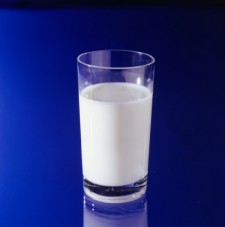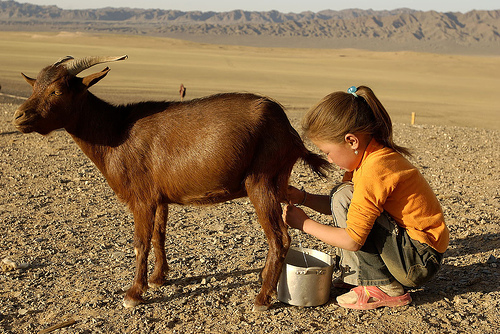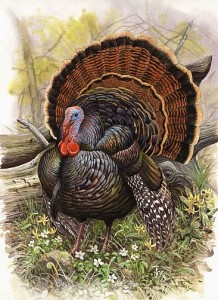Got evidence? The Real Effect of Milk on Sleep and Dreams

Two new milk advertisements by the dairy industry have been making their rounds on American television. Both ads suggest that drinking a glass of milk before bed will prevent awakenings in sleep and give you better dreams. Unfortunately, the evidence for a good night’s sleep thanks to a glass of milk is a little thin.
Or should I say skim?
Here’s one of the ads:
How could milk give you longer dreams?
To do so, the properties of milk would have to have an effect on the structure of sleep, by increasing the length of REM sleep (dreaming sleep), for example, or delaying a shift into wakefulness. There’s no clinical study that’s ever looked at this correlation directly.
However, several studies have looked into the effects of a key ingredient found in milk: melatonin, an amino acid that regulates the sleep-wake cycle. A 2000 study published in the journal Sleep and Hypnosis found that taking 6mg of melatonin at night for two weeks significantly increased bizarre dreams for college students.
The second milk ad really seems to key into the bizarreness of dreams. Check it out.
By the way, in dream research lingo, bizarreness is often another way of saying creepy andnightmarish. Bizarre dreams are not necessarily populated by milk goddesses.
There’s also some clinical studies on larger doses of melatonin (over 5mg), which have been linked with increasing REM sleep in general, at least in some people, such as patients who are suffering from REM sleep deprivation.
On a purely anecdotal level, I know of many dreamers who have reported vivid, nightmarish and lucid dreams after taking very high doses of supplemental melatonin (over 10mg. It’s not safe, don’t do this).
So, at first blush, it seems there may be something to the dreamy effect of milk.
Tryptophan and Melatonin
Besides melatonin, milk contains trace amounts of tryptophan, which is another amino acid that’s found in a lot of foods, including most meats as well as scores of seeds and nuts.
Tryptophan is synthesized in the brain as serotonin, and finally melatonin.
Because of this relationship, tryptophan can also have a drowsiness effect when a lot is consumed at the right time.
But here’s the rub:
Compared to other foods, milk doesn’t really contain much tryptophan. Half a glass of milk (4 oz) contains about .08grams of tryptophan, compared with the same or equivalent amount of soybeans (.59 gram), spirulina (.9 gram) and dried white egg (1gram).
You’d need to drink a gallon of milk for the tryptophan effect.
According to sleep doctor Michael Breus, you’d need to drink a gallon of milk for the tryptophan effect. So you’ll be interrupting your dreams by going to the bathroom every 20 minutes.
Milk doesn’t have much melatonin either; certainly much less than those 5mg mega-doses you can get from over-the-counter supplements.
Creepily enough, there is a new kind of milk currently being tested called night milk, which is taken from cows at night that are fed a lot of tryptophan in their diets. It’s patented and supposedly contains over 25 times the melatonin of ordinary milk. It’s pretty controversial. Still, even “sleepytime milk” has a hundredth of a typical dose you’d get from a typical melatonin supplement.
Drinking Milk Alone Won’t Do the Trick

Drinking milk alone is sad.
In any case, the amount of sleep-inducing amino acids that you consume before bed is not the only issue here.
To affect sleep, tryptophan needs to be absorbed more readily than other amino acids, and the best way to do this is to eat foods with complex carbohydrates, which cause an insulin spike to clear out the sugars and those competing amino acids.
Guess what?
Milk by itself doesn’t have many complex carbs; it’s mostly simple sugars. So, to get the (ridiculously small) tryptophan effect from milk, you’d need to take it with a bowl of cereal or with some toast.
This is a good idea anyways, as eating a small, healthy snack an hour before bed can help you lose weight.
Milk’s secret weapon?
There’s one more potential for milk to help with falling asleep.
Milk contains some casein proteins, which may have a slight relaxation effect. Four of the six proteins in milk are casein proteins; the others are whey.
Athletes and bodybuilders swear by protein shakes high in casein to help with slowing muscle atrophy during sleep, although I don’t know if this use has been clinically demonstrated.
Casein proteins may lower cortisol levels and blood pressure
According to some recent European research, casein proteins may lower cortisol levels and blood pressure, both of which are helpful for drifting off to sleep more quickly.
Still, there’s a lot of other dairy products that have more caseins proteins than milk –most hard cheeses and cottage cheese for example.
Got Curds?
Speaking of curds, there’s actually some evidence for the effect of fermented milk on sleep health. In fermented milk, the bacteria Lactobacillus helveticus may help with falling asleep and also lower blood pressure.
Lactobacillus helveticus is the bacteria that is responsible for making cheese, and as a probiotic it’s also been linked to preventing infections and improving immune response. So that’s another reason to have cheese rather than milk before bed (because those bacteria are still in the cheese–it’s a live food).
Go for cheddar, mozzarella or Swiss cheese. Even better, make some cheese toast, and get your complex carbs too.
Drinking milk is probably not going to transform your dream life. But a glass of milk may be a healthy part of a bedtime snack that could make it easier to fall asleep. Make it a warm glass of milk if you want to add that special “just like Grandma did” effect.
Tags:
Replies to This Discussion
-
Permalink Reply by Zephonith Serpent Woman on January 4, 2014 at 9:00am
-
Goat's milk!
-
-
Permalink Reply by 1yrns4vean19o on January 5, 2014 at 5:16am
-

-
-
Permalink Reply by Zephonith Serpent Woman on January 5, 2014 at 6:01am
-
-
Permalink Reply by 1yrns4vean19o on January 6, 2014 at 3:22am
-
:)) excellent as always Zephonith
-
-
Permalink Reply by Zephonith Serpent Woman on January 7, 2014 at 4:31am
-
Thank you for posting such interesting and diverse topics, Samael-I-Am.
I would also add that there are many things which prevent us from dreaming - fluoride esp in cavity-causing toothpaste, which calcifies the Third Eye, an unnatural diet, and much misguided religious theology.
Sweet Dreams!
-
-
Permalink Reply by 1yrns4vean19o on January 9, 2014 at 3:09am
-
You are very welcome! Yes, one must be vigilant about what goes into one's body. I have been free of fluoride, preservatives, fructose and other such chemicals for about 4-5 years now. It makes a huge difference. It really does.
-
-
Permalink Reply by Zephonith Serpent Woman on January 10, 2014 at 7:21am
-
The body is the Temple:)

-
-
Permalink Reply by 1yrns4vean19o on January 10, 2014 at 7:42am
-
SO IT IS :)

-
-
Permalink Reply by 1yrns4vean19o on January 9, 2014 at 3:08am
-
Well, the thing with Melatonin supplements is that is usually bull melatonin. It is far better to meditate, and activiate the Pineal Gland which releases Melatonin into your body naturally.
-
Have questions?
Need help? Visit our Support Group for help from our friendly Admins and members!
Have you?
Donations & Sponsorship
Connect
Visit The Temple
on Facebook:
Blog Posts
The Simpsons
Posted by Heth Lee (李) on September 25, 2025 at 6:30am 0 Comments 0 Likes
Channeled Angelic Wisdom of the Jewels of Truth Series on Astral Holy Light & Sound and Binary Dominion Inversion
Posted by Atrayo on September 25, 2025 at 1:05am 0 Comments 1 Like
StatiCal: Exodus
Posted by Heth Lee (李) on September 20, 2025 at 7:00am 2 Comments 0 Likes
RUDOLF STEINER 1917 QUOTE & LINKS on >The Fall of the Spirits of Darkness
Posted by FRA .*. DISTURABO .*. on September 17, 2025 at 8:00pm 0 Comments 1 Like
Boy Wonder
Posted by Heth Lee (李) on September 17, 2025 at 4:30am 0 Comments 0 Likes
אדוארד אלכסנדר קראולי - EDWARD ALEXANDER CROWLEY / 928 - 1440
Posted by FRA .*. DISTURABO .*. on September 16, 2025 at 1:12am 0 Comments 0 Likes
Temurah - 424 - 516 - 86 (תְּמוּרָה) 651
Posted by FRA .*. DISTURABO .*. on September 12, 2025 at 6:30pm 0 Comments 1 Like
4638 ABK 24 ALGMOR 3YX 24 89 RPSTOVAL
Posted by FRA .*. DISTURABO .*. on September 12, 2025 at 5:00pm 0 Comments 0 Likes
2106 ••• SOME INTERESTING ENGLISH GEMATRIA
Posted by FRA .*. DISTURABO .*. on September 11, 2025 at 7:00pm 0 Comments 1 Like
359
Posted by FRA .*. DISTURABO .*. on September 11, 2025 at 4:30pm 0 Comments 1 Like
Channeled Angelic Wisdom of the Jewels of Truth Series on Cascading Blessings, Energy Healing, and The Seven Orders of Karma
Posted by Atrayo on September 11, 2025 at 12:19am 0 Comments 1 Like
The Drac: The Blue Album
Posted by Heth Lee (李) on September 11, 2025 at 12:00am 0 Comments 0 Likes
The 3i/ATLAS
Posted by Heth Lee (李) on September 8, 2025 at 2:00pm 0 Comments 0 Likes
TEMPLE ILLUMINATUS / מקדש אילומינטוס
Posted by FRA .*. DISTURABO .*. on September 7, 2025 at 8:30pm 1 Comment 1 Like
POWER!
Posted by Rosey Cross on September 7, 2025 at 4:57pm 0 Comments 0 Likes
ABOVE!
Posted by Rosey Cross on September 7, 2025 at 4:54pm 0 Comments 0 Likes
SEAL SIGNET -vs- CATTLE BRAND
Posted by FRA .*. DISTURABO .*. on September 3, 2025 at 4:30pm 0 Comments 0 Likes
NEO SLAVERY
Posted by FRA .*. DISTURABO .*. on September 1, 2025 at 7:36pm 0 Comments 0 Likes
888 -vs- 666
Posted by FRA .*. DISTURABO .*. on September 1, 2025 at 7:30pm 0 Comments 1 Like
SOUL CONTRACT REVOCATION FORM (sample)
Posted by FRA .*. DISTURABO .*. on August 31, 2025 at 8:16pm 0 Comments 1 Like
NOVEMBER AWARENESS
Videos
© 2025 Created by Bryan
Powered by
![]()

